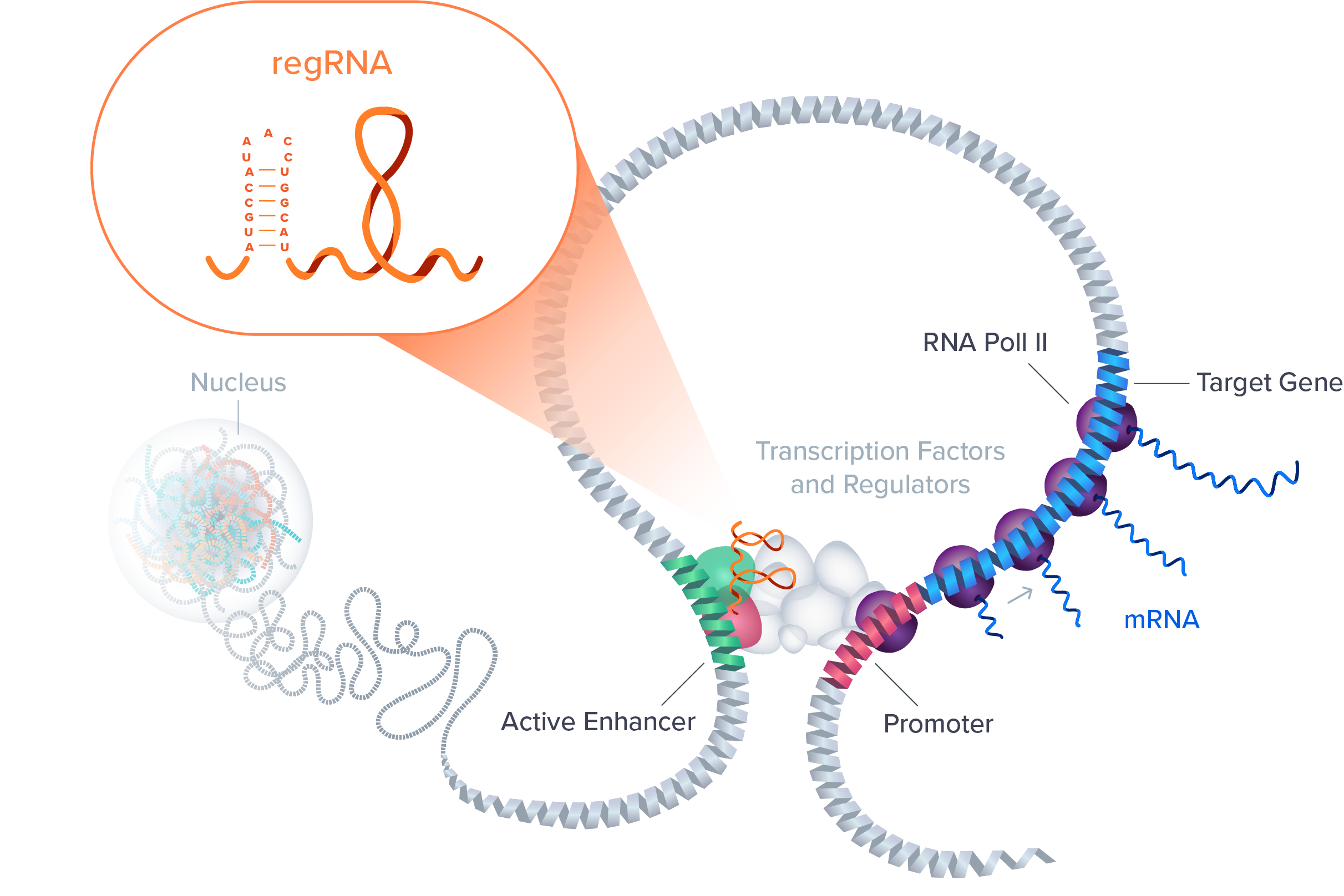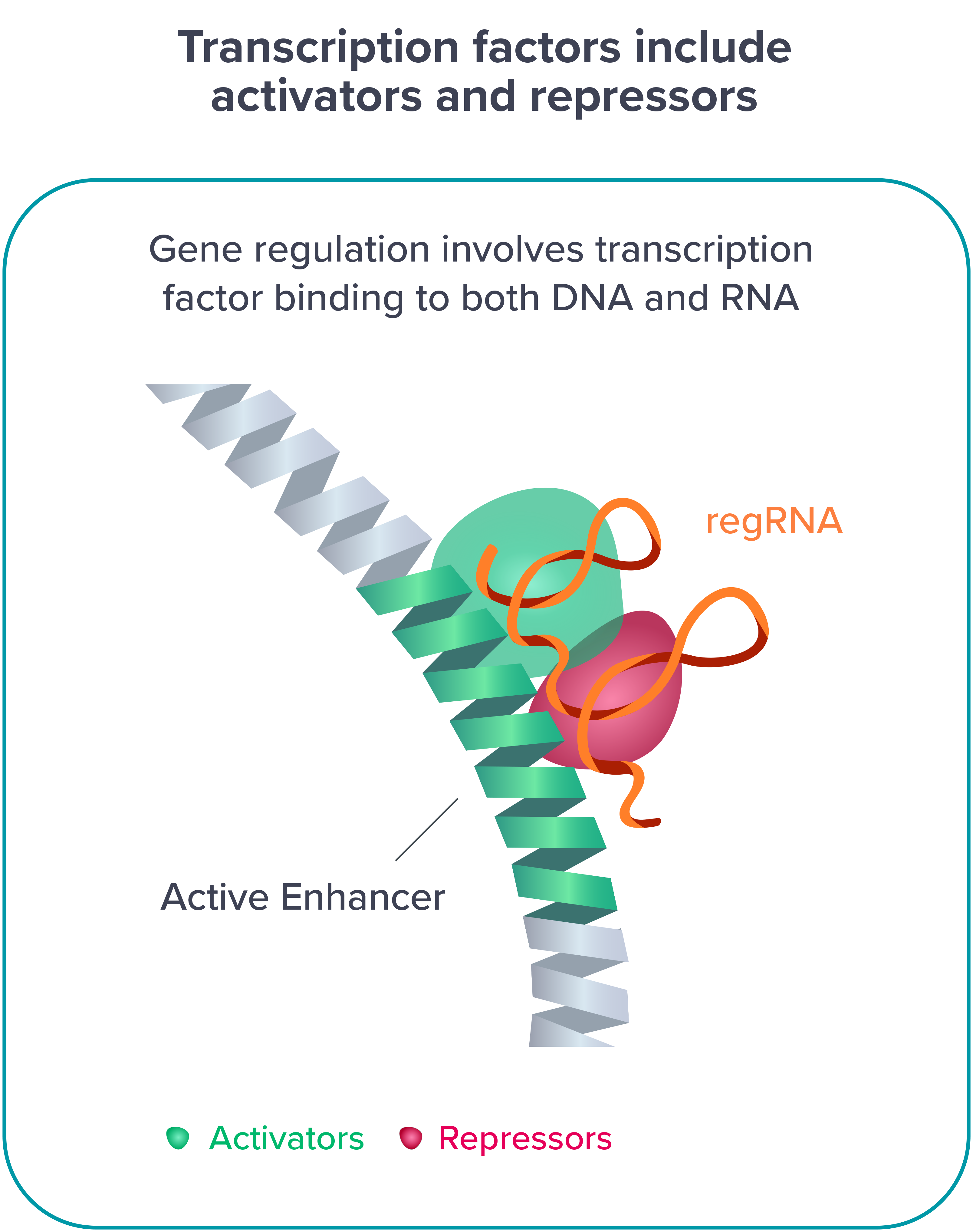The Problem
A genetic mutation causes one gene allele to stop functioning
Leading to ~50% of normal protein expression
Genetic changes leading to sub-optimal protein levels underlie many human diseases. Amplifying mRNA, leading to increased production of healthy protein, can lead to meaningful therapeutic benefits for over a thousand diseases. At CAMP4, the solution lies in our RNA.
We are focused on a form of RNA that regulates gene expression and has been unexploited as a therapeutic target, until now: regRNA.
We have built the industry’s only platform to map every regRNA for the tunable amplification of genes. Our approach enables the efficient and systematic creation of antisense drug candidates to control any regRNA.

We are pioneering a new approach to restore healthy protein levels.

Amplifying mRNA with programmable ASO drugs has the potential to be game-changing for over a thousand genetic diseases. Our therapeutic approach is applicable to any disease where increasing protein expression is beneficial.
The Problem
A genetic mutation causes one gene allele to stop functioning
Leading to ~50% of normal protein expression

CAMP4's Approach
Upregulate the healthy allele, generating a 2x increase in protein production
Resulting in near-normal protein levels

The Problem
A genetic mutation causes both alleles to function poorly or not at all, leading to < 25% of normal protein expression

CAMP4's Approach
Upregulate either the mutated gene with residual function or a gene with compensatory function, generating a 2x increase in protein expression
Resulting in near-normal protein levels

Our initial focus is on diseases of the liver and central nervous system, where proven technology exists to deliver antisense therapies to those cells and tissues. Beyond that, we have mapped multiple cell types comprising of a number of potentially addressable diseases in the heart, skeletal muscle, and immune system.